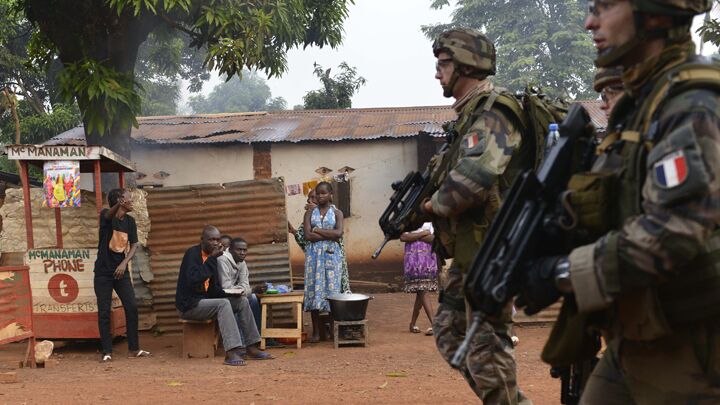
EU Plans Mission to Central African Republic
The EU will send 800 soldiers to the Central African Republic (car) to keep the peace between Muslims and Christians, officials announced April 2 ahead of a major EU-Africa summit.
The first soldiers of the mission, called eufor–car, will arrive by the end of April with the rest arriving by May. Estonia, Finland, France, Germany, Italy, Latvia, Lithuania, Luxembourg, Poland, Portugal, Sweden and the United Kingdom will take part, along with Georgia, which is not in the EU. Estonia, France, Georgia, Poland and Spain will send the bulk of the soldiers, with Germany promising air transport and Britain engineering and logistical help. The EU will also contribute €26 million (us$35.7 million).
On the same day German Chancellor Angela Merkel and French President François Hollande gave a joint press conference where both pledged support for the mission and for each other. Ms. Merkel said that the two countries were “seeking to be a motor” for the Continent. German foreign policy in Africa is beginning “a new path” she said, saying that Germany aimed “to show greater responsibility within Africa as well as classical development policies.”
The focus of the summit was a shift from aid to trade. “Our neighboring continent Africa is gaining greater significance,” said Merkel, calling for “more trade, more investment and more empowerment—so that African problems can also be solved by Africans themselves.”
Yet behind the EU officials’ pleasant sounding words is a more selfish reality. Europe has been giving aid to Africa; now they want to be able to sell to Africa instead. The EU currently allows African countries free access to European markets without demanding anything in return. But in October, that will change—African nations will lose that free access unless they sign a deal with the EU giving Europe a certain amount of free access to the African markets.
In both trade and military spheres, Europe is getting more interested in its neighboring continent. A big reason for that is money—Africa is rich in resources. And as the continent gets richer, there’s a greater potential for the EU to sell things to them as well.
Europe claims Africa as a “zone of EU-privileged interests.” It presents a key test for Europe as the EU emerges as a world power. America is no longer willing to confront Islamic extremism or contain unrest that could affect Europe. For the first time in decades, the EU will have to take the lead itself. As it extends its reach and trade clout, Africa is its closest and weakest neighbor—making it the easiest outlet for a revival of European imperialism.
However, even as Europe expands into Africa, radical Islam is also spreading its presence.
“Northern Africa is turning into a battleground with enormously important prophetic implications,” wrote Trumpet editor in chief Gerald Flurry last year. Europe’s “new path” in Africa is both a response to radical Islam’s push in places like Mali and the Central African Republic, and a catalyst for further confrontation. For more information on the future of Europe in Africa, read Mr. Flurry’s article “Watch Algeria!”
